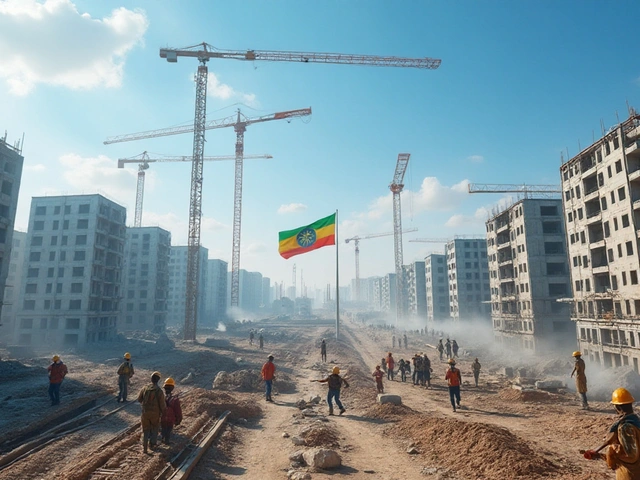Rent in Ethiopia: Costs, Tips, and What to Expect
Thinking about renting a place in Ethiopia? You're not alone. Lots of people, whether moving from other cities or countries, wonder what rent will look like and how to avoid headaches. Let’s break it down in plain language.
First things first—location changes everything. In Addis Ababa, Ethiopia's capital, rent is on the higher side compared to other Ethiopian cities. A simple one-bedroom in a central area? It’ll cost way more than similar places in Bahir Dar, Hawassa, or small towns. Addis is hustling, full of newcomers, and that always pushes prices up. For example, a decent apartment in a prime Addis Ababa neighborhood can go for anywhere from 12,000 to 25,000 birr a month, depending on size and amenities. Go further from the city center or compromise on extras like parking and you can save big.
Other cities and towns? Totally different story. In places like Mekelle or Jimma, you might find a similar apartment for almost half the Addis price. If you’re not married to one location and want your money to go further, looking outside the capital is smart. Even within Addis, prices change block by block, so sometimes just moving a short distance makes a big difference.
What actually shapes the cost? Three main things: location, house type, and extras. "Extras" could mean anything from water tanks (popular in areas with spotty water service) to security guards, or proximity to shops and schools. If you want a place with reliable water and power, expect the price to reflect that. Furnished apartments are catching on in some neighborhoods—great if you’re new and don’t want the hassle, but again, expect to pay more.
Now, how do you actually find a place? Facebook groups and local real estate agents are still the go-to. That’s right—while some fancy platforms exist, most homes are still found the old-fashioned way: by talking to people, asking taxi drivers, and keeping your ears open. Beware of "brokers" who ask for viewing fees or seem shady. It's common to pay the broker a commission (usually a month’s rent) once you find a place, but paying just to see something should be a red flag.
Negotiation is normal! Most landlords expect it. If you like a spot but the price is a little high, make a reasonable offer. It helps if you can pay several months upfront or prove you're a reliable tenant (steady job, local references, etc.). Most leases are for a year, paid three to six months at a time—so save up and budget for those big payments.
Don’t forget the basics: Always check for a written contract, even if you’re moving in with someone you trust. Make sure you agree on who pays for utilities, repairs, and any shared building costs before you sign. Take photos of any damage and note it down, so you can avoid disputes when you move out.
Finding the right rental in Ethiopia takes persistence, but locals do it every day. Knowing what to expect saves time, money, and stress. Whether you’re moving for work, family, or just a change of scenery, a little preparation goes a long way here.





